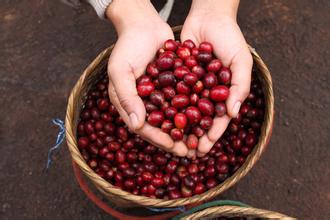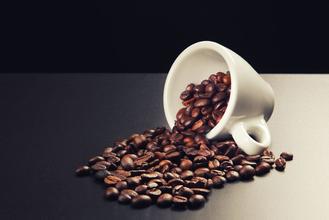Introduction to the Grinding scale for Flavor description of Panamanian Coffee production
Introduction to the Grinding scale for Flavor description of Panamanian Coffee production
Feicui Manor is famous for its Geisha variety. Rose summer seeds were discovered in the rose summer forests of Ethiopia in 1931 and sent to the Coffee Institute in Kenya, and then introduced to Uganda, Tanzania and Costa Rica, all mediocre. It was not until it was transplanted to Panama in the 1960s that it became a blockbuster after nearly half a century. Beat Bourbon, Kaddura, Kaduai and Tibica on BOP (Best of Panama) in 2005, 2006 and 2007, and won the championship for three years in a row. In 2007, the International famous Bean Cup Test sponsored by the American Fine Coffee Association (SCAA) won the championship again, and the bidding price was sold at US $130 per pound, setting a record for the highest price in the history of competition beans. Rosa, a member of the Tibika family, grew into the king of coffee in the land of Panama after leaving Ethiopia. It successfully conquered the taste buds with rich floral and fruity aromas and bright acidity.
Taste rosy summer, after the entrance of the beautiful sweet, accompanied by a slight floral fragrance, comfortable and balanced taste, long-lasting rhyme. The unique fruity aromas of litchi, lemon and citrus are amazing enough. Carefully capture the aroma of peach and apricot, the overall feeling is cool and transparent. In every cooking, always with the mood of making holy wine, do not dare to slack off (in fact, it is also because of the high price, I would like to add a smirk here)
This bean is fully washed and processed, the appearance is fresh emerald green, the bean is full and shiny, it looks like a high-density hard bean. Baked to an obvious degree of high fruit aroma shows, the entrance is also juice-like sweet and sour, bright and refreshing. Baking a little deeper to the baking degree of high, the sweetness of vanilla and nectar in dried incense are mixed together, which makes people intoxicated. The baking degree of high+, acidity decreases, mellowness increases, sweetness increases obviously, fruit acid is softer and more lively, and strong sweetness and fragrant fruit aroma can still be felt in the aftertaste.
Producing area of raw beans: Geisha is a very rare coffee variety, which has caused a sensation among coffee connoisseurs all over the world over the past five years. It is considered to be the brightest, richest and most strongly fragrant coffee variety. Before it won its international reputation, Rosa was first brought to Costa Rica by Don Pachi from the town of GESHA in southwestern Ethiopia, and then from the southern route into Panama, for which we thank him. These coffee trees grow at very high elevations and have beautiful slender leaves. Its fruits and raw beans are also slightly slender compared to other top-quality high-altitude coffee. Rose is full of sweetness and cleanliness on the palate, with rich aromas ranging from berry and citrus to mango, papaya and peach. A very obvious lemon (bergamot) general aftertaste is also a typical cup test attribute. So far, Rose Summer has been the champion of coffee varieties. [cup test evaluation] moderate alcohol thickness, sweet, multi-layered tropical fruit flavor, rose type aroma, aftertaste.

Important Notice :
前街咖啡 FrontStreet Coffee has moved to new addredd:
FrontStreet Coffee Address: 315,Donghua East Road,GuangZhou
Tel:020 38364473
- Prev

Introduction to the Variety characteristics of Columbia Nana Linglong Coffee Flavor description treatment
Columbia Linglong Coffee Flavor description method Variety characteristics of producing areas introduce the unique geographical environment of Nalinglong, near the equator, high mountains, Nalinglong's average planting altitude is high, reaching about 2000 meters, the average temperature of the area is the lowest of all producing areas in Colombia, with an average annual temperature of 19.9C, ranging from the lowest 16C to the highest 25.9C.
- Next

Introduction of Regional Grinding scale for Ramon Coffee Bean processing in Colombia
Colombian Ramon coffee bean processing quality regional grinding scale introduces that the suitable climate in Colombia provides a real natural pasture for coffee. Coffee trees in Colombia are mainly cultivated in the Andes, on steep slopes about 1300 meters above sea level, where the annual temperature is about 18 degrees Celsius, annual rainfall is 2000 to 3000 millimeters, and latitude 1-11.
Related
- Detailed explanation of Jadeite planting Land in Panamanian Jadeite Manor introduction to the grading system of Jadeite competitive bidding, Red bid, Green bid and Rose Summer
- Story of Coffee planting in Brenka region of Costa Rica Stonehenge Manor anaerobic heavy honey treatment of flavor mouth
- What's on the barrel of Blue Mountain Coffee beans?
- Can American coffee also pull flowers? How to use hot American style to pull out a good-looking pattern?
- Can you make a cold extract with coffee beans? What is the right proportion for cold-extracted coffee formula?
- Indonesian PWN Gold Mandrine Coffee Origin Features Flavor How to Chong? Mandolin coffee is American.
- A brief introduction to the flavor characteristics of Brazilian yellow bourbon coffee beans
- What is the effect of different water quality on the flavor of cold-extracted coffee? What kind of water is best for brewing coffee?
- Why do you think of Rose Summer whenever you mention Panamanian coffee?
- Introduction to the characteristics of authentic blue mountain coffee bean producing areas? What is the CIB Coffee Authority in Jamaica?

